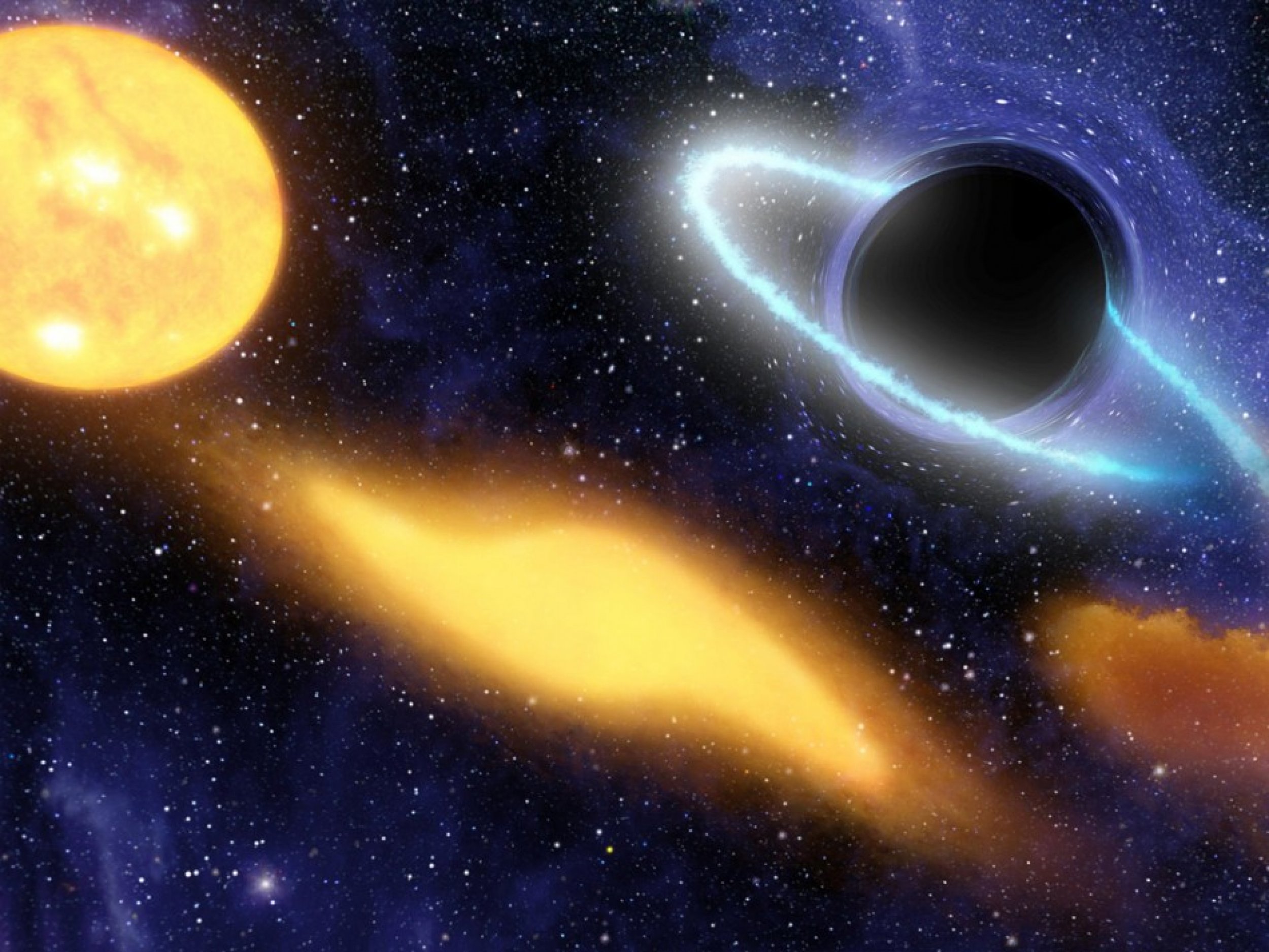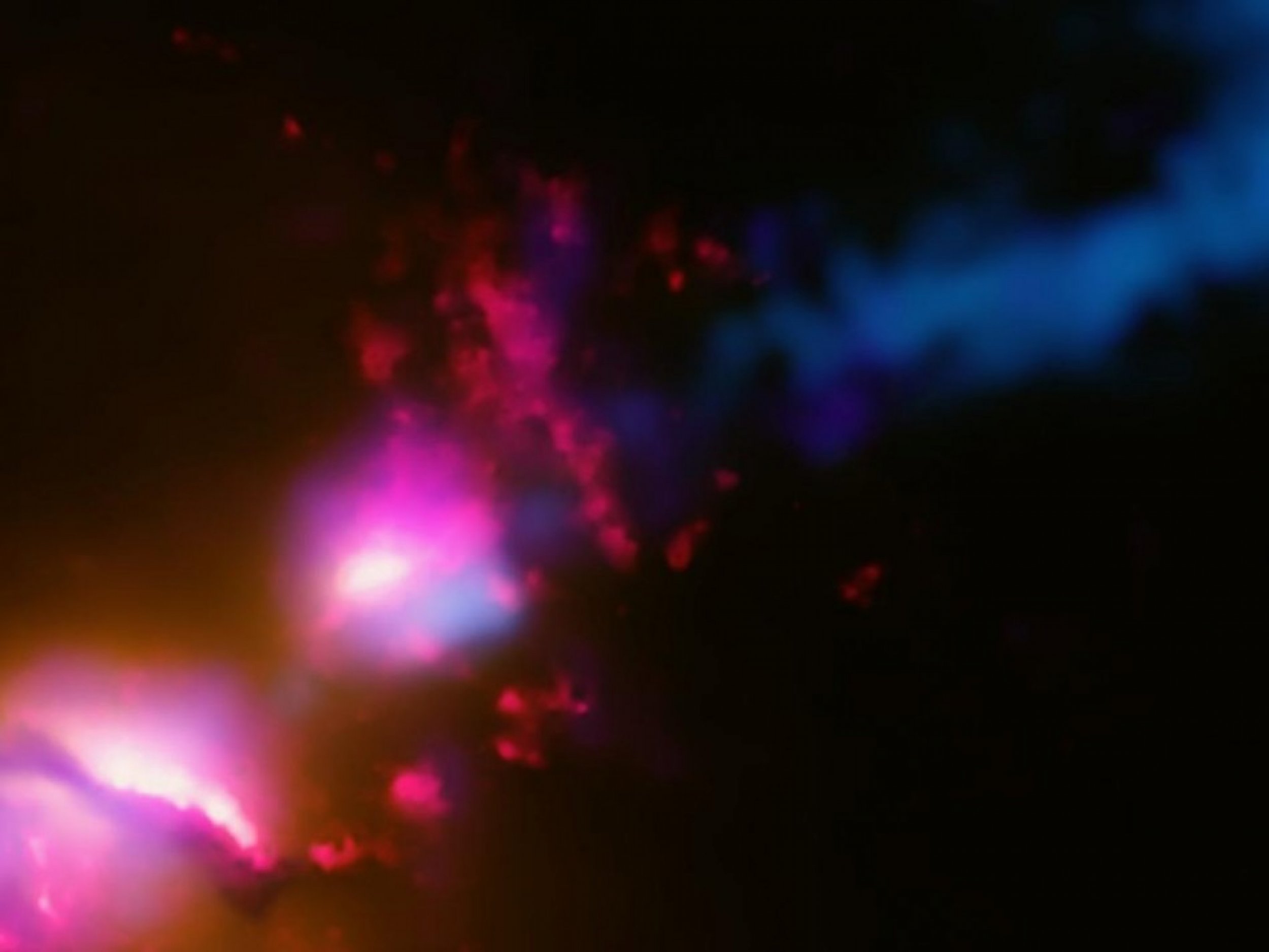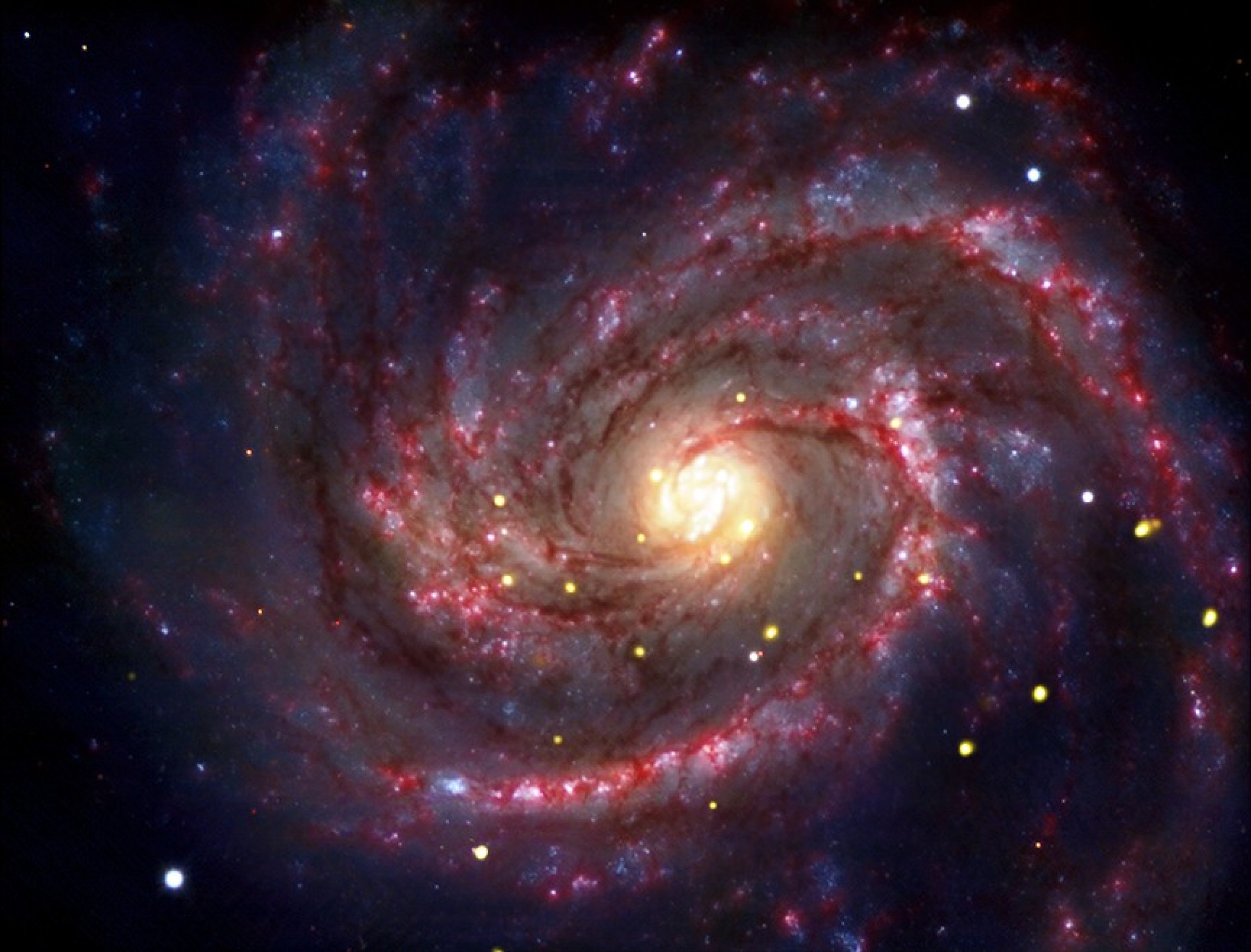Could a Black Hole Destroy Earth?
What is a black hole?
A black hole is a region in space where the pulling force of gravity is so strong that light is not able to escape. The strong gravity occurs because matter has been pressed into a tiny space. This compression can take place at the end of a star's life. Some black holes are a result of dying stars.
Because no light can escape, black holes are invisible. However, space telescopes with special instruments can help find black holes. They can observe the behavior of material and stars that are very close to black holes.
How Do Black Holes Form?
Primordial black holes are thought to have formed in the early universe, soon after the big bang.
Stellar black holes form when the center of a very massive star collapses in upon itself. This collapse also causes a supernova, or an exploding star, that blasts part of the star into space.
Scientists think supermassive black holes formed at the same time as the galaxy they are in. The size of the supermassive black hole is related to the size and mass of the galaxy it is in.
If Black Holes Are "Black," How Do Scientists Know They Are There?
A black hole can not be seen because of the strong gravity that is pulling all of the light into the black hole's center. However, scientists can see the effects of its strong gravity on the stars and gases around it. If a star is orbiting a certain point in space, scientists can study the star's motion to find out if it is orbiting a black hole.
When a black hole and a star are orbiting close together, high-energy light is produced. Scientific instruments can see this high-energy light.
A black hole's gravity can sometimes be strong enough to pull off the outer gases of the star and grow a disk around itself called the accretion disk. As gas from the accretion disk spirals into the black hole, the gas heats to very high temperatures and releases X-ray light in all directions. NASA telescopes measure the X-ray light. Astronomers use this information to learn more about the properties of a black hole.
Could a Black Hole Destroy Earth?
Black holes do not wander around the universe, randomly swallowing worlds. They follow the laws of gravity just like other objects in space. The orbit of a black hole would have to be very close to the solar system to affect Earth, which is not likely.
If a black hole with the same mass as the sun were to replace the sun, Earth would not fall in. The black hole with the same mass as the sun would keep the same gravity as the sun. The planets would still orbit the black hole as they orbit the sun now.
Source: NASA




© Copyright IBTimes 2024. All rights reserved.




















